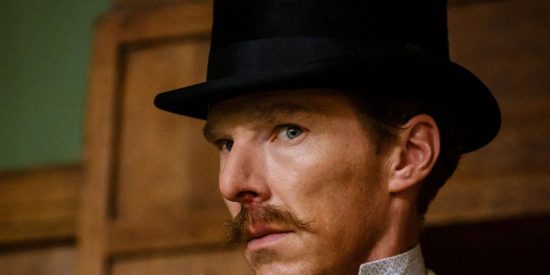TIFF 2021 Review: The Electrical Life of Louis Wain – “The film never lives up to the brilliant first half it creates”

Image courtesy of TIFF
Prior to viewing The Electrical Life of Louis Wain, I was unfamiliar with this British artist. It turns out he was an inventor, fascinated by the idea and study of electricity, a recent discovery in Victorian era England. He dabbled in boxing. He was an illustrator for a London newspaper. However, the reason he rose to fame in the UK was for his drawings and paintings of cats. Through capturing the magic of these animals, at times anthropomorphizing them, Wain garnered a distinct following and brought cats from a creature used solely to keep mice away to a revered pet kept in homes.
Benedict Cumberbatch couldn’t have chosen two more different roles than those in the films he brings to TIFF this year. He also appears in Jane Campion’s The Power of the Dog, a sweeping western where he absolutely transforms himself into a vile and cruel cowboy. For The Electrical Life of Louis Wain he returns to more familiar territory – a period piece with an eccentric and intelligent central character. It’s a comfortable place for Cumberbatch, and he reliably excels here also as the titular character even if it is reminiscent of some of his previous roles. His chemistry with Foy creates an exceptional and charming warmth and some of the best scenes in the film resonate well because of their partnership. But, our protagonist needs a catalyst for what becomes his legacy, and so a happy ending is not meant to be.
The first half of The Electrical Life of Louis Wain is quirky and delightful. There’s no shortage of smiles courtesy of some very cheeky narration from Olivia Colman. However, the second half of the film takes a distinctly different tone and director Will Sharpe (Black Pond) brings out all the stops, relying more heavily on gimmicks and less on the character and momentum of the film that came before. Colman’s narration largely disappears, to my distinct disappointment, though admittedly the short-lived aspect of giving cats subtitles is charming (who doesn’t want to see a kitten saying “I love jomping”? Yes, spelled just that way).
There is something to be said for the introduction of some of the more psychedelic visuals as Wain’s mental state starts to decline and work starts to take on new form, but it just didn’t seem to fit, the transition happening too suddenly. This may be an instance where a life is just too full, too nuanced to fit into 111 minutes. Despite the best efforts from Sharpe and Cumberbatch to celebrate this eccentric character, the film never lives up to the brilliant first half it creates. Cat lovers will still find a lot to love here in a film that doesn’t depict felines dancing or singing, just being, in all the splendid ways Wain saw through his unique perspective.










